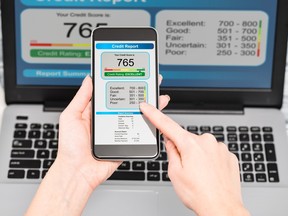Are you ready to manage your finances and expand your options? It’s simpler than imagined! Financial management has changed thanks to cryptocurrencies.
While many dive into crypto for investment and DeFi opportunities, you might be surprised to discover their incredible potential for everyday budgeting. If you’re looking for a modern, efficient way to track spending, organize bills, and gain greater control over your financial life, then crypto wallets might be your perfect solution.
Understanding Crypto Wallets in Budgeting
Traditionally, crypto wallets have been used to store and send digital assets, but they can be used for a lot more. Non-custodial wallets, in which the user keeps full control of the private keys, are becoming common as budgeting tools, especially in a digital economy.
One standout example in this space is Best Wallet, a non-custodial, multichain wallet available on iOS and Android. With hundreds of thousands of downloads on Google Play and the iOS App Store, this wallet stands out because its user base is always growing. It’s often ranked as one of the best-decentralized exchange (DEX) wallets since it works with more than 60 blockchain networks, lets you trade without a central authority, and stores your coins safely.
These digital wallets are the best way to secure crypto and stick to budgets. With crypto wallets, you can split funds into various accounts or portfolios, similar to how traditional budgeting apps operate. For example, you can designate funds for daily expenses, hold assets in savings, or invest tokens in decentralized exchanges.
Compared to traditional bank accounts, crypto wallets operate without intermediaries, ensuring complete transparency and flexibility in managing your money. Many wallets also offer detailed transaction histories, helping users monitor spending patterns effectively.
Key Features That Support Budgeting Goals
Crypto wallets have numerous attributes that make them good for keeping track of budgets. A significant advantage is that they can work with multiple blockchain networks, which makes it easier to group funds into the right categories. For example, you can use Ethereum to invest and stablecoins like USDC to pay for regular purchases. This gives you more options for how to organize and handle your money.
Adding decentralized finance (DeFi) tools is another important feature. You can trade assets right in the wallet app, stake tokens to earn passive income or join liquidity pools with many wallets. These tools can help you get the most out of your money while still keeping your spending in check.
Crypto wallets also give you control over your spending and transparency. Since transactions are recorded on the blockchain, no changes can be made to any transfers or payments. This level of openness helps you keep track of your spending and see patterns in the way you spend your money.
Non-custodial wallets are particularly useful for storing emergency funds. Users can protect their savings against inflation and currency fluctuations by keeping digital currencies in a safe wallet. This way, they can get to their money quickly when they need it.
Normal budgeting apps work, but crypto wallets have a few extra benefits that make them stand out. Because there are no geographical or banking restrictions, they make it possible for everyone to use them. Crypto wallets make it easy to manage your money, no matter where you are—in a developed country or a place with weak financial infrastructure.
One benefit is that it saves money. There are usually fees for transfers, maintenance, and currency exchanges in traditional banking systems. On the other hand, crypto wallets allow transactions to happen at low costs, making them perfect for people who are conscious of their budgets.
Better privacy is necessary for crypto wallets. They let people manage their money without sharing private information, unlike traditional financial tools. This increases safety and control.
Crypto wallets help a lot of people get access to money, especially those who don’t have bank accounts. They are useful alternatives to bank accounts because they let people save, spend, and invest without using traditional banking systems.
How to Use Crypto Wallets to Keep Track of Your Money
To make the most of a crypto wallet for budget management, start by choosing a reliable option that combines security, usability, and multi-chain functionality. This guarantees your funds remain accessible and protected.
Next, segment your crypto holdings by purpose. Use stablecoins for daily expenses to avoid volatility, and allocate other assets for savings or investments. Regularly review transaction histories to analyze your spending trends and stay on track with your budget.
Optimize your finances. How? Staking, liquidity provision, or yield farming can generate passive income, supplementing your savings or covering unexpected expenses. Being aware of wallet updates that may help you better manage your money is imperative.
Potential Challenges to Consider
Crypto wallets may assist you in maintaining records of your money, but there are a few things you should know. Volatility in the market is the most important. While incredibly useful, there are a few key aspects to keep in mind as you embark on this exciting path.
First, remember that the crypto market can be a bit like a roller coaster—with thrilling highs and some lows along the way. The value of cryptocurrencies can change rapidly, which could impact your budget. But don’t worry. You can minimize this risk by using stablecoins like USDC or DAI, which are designed to maintain a consistent value.
Security is another crucial piece of the puzzle. Think of your crypto wallet as your vault. With non-custodial wallets, you become the key master, responsible for safeguarding your digital treasures. This means keeping your private keys confidential, creating strong passwords, and storing them in a secure location.
Eventually, be prepared to embrace a learning curve. Understanding blockchain technology and how wallets work might feel like learning a new language at first. But don’t be discouraged! With a bit of research and practice, you’ll become fluent in no time.
So, take a deep breath, embrace the journey, and remember that with the right approach, you can confidently navigate the exciting world of cryptocurrencies.
Conclusion
As you can see, crypto wallets are expanding their functions beyond just holding digital money. With cool features for keeping track of spending, saving more, and even trading, they’re becoming useful tools for handling your money. This is a new way to make a budget because it works with multiple chains and focuses on security. Being able to control your own money could become easier with crypto wallets as decentralized finance grows. This is true for both crypto enthusiasts and people who just want to manage their money better.
Related




















Discussion about this post